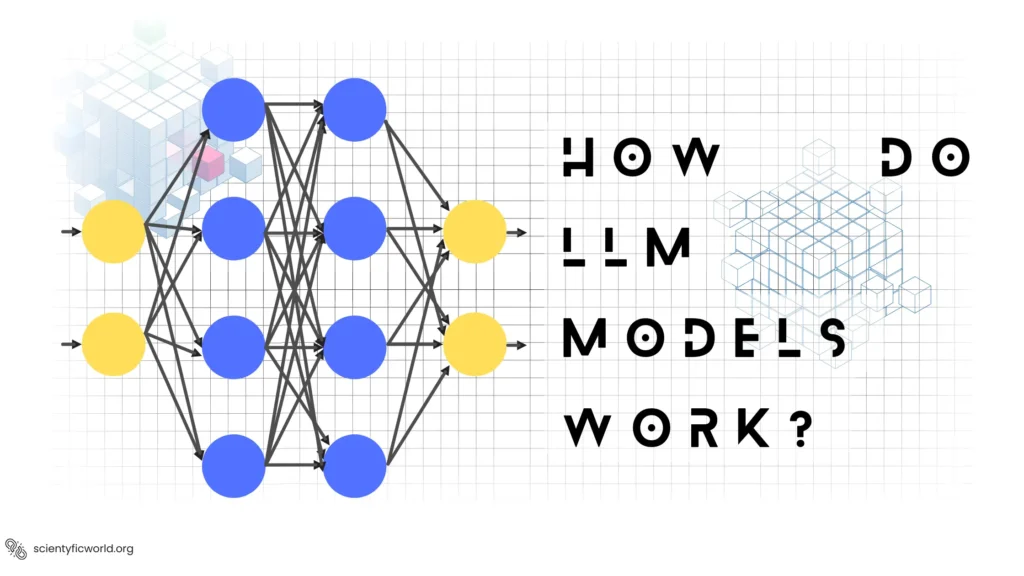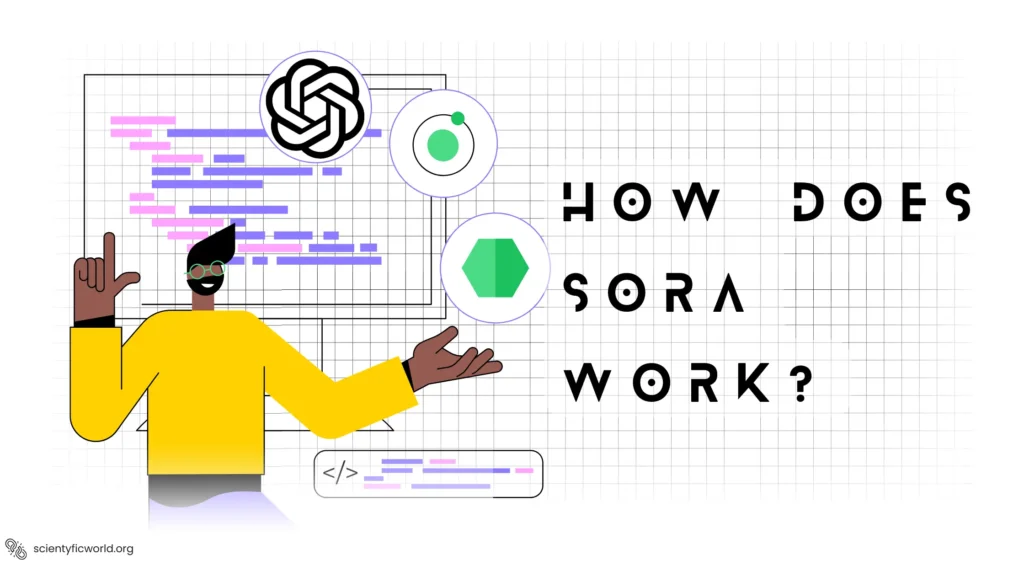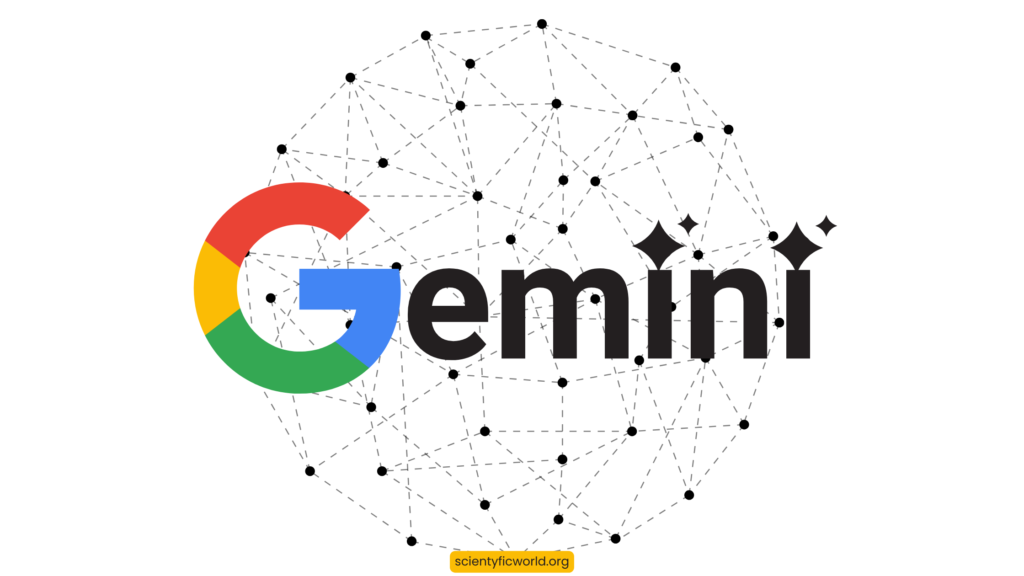Follow Us:
15 Free AI Tools For Students That Will Blow Your Mind!🤯

If you’re like most people, you probably think of artificial intelligence (AI) as advanced gaming characters or Hollywood AIs like the voice of Siri on the iPhone. But AI is so much more than that. AI is quickly becoming one of the most important tools in a wide range of industries, from medicine to manufacturing. In this blog post, we will be discussing 15 of the best AI tools that students can use to help them with their studies.
Use of AI tools and tech in different areas:
In practical terms, AI applications can be deployed in a wide variety of domains, including finance, healthcare, manufacturing, and transportation. Some of the most well-known AI applications include self-driving cars, Recommender Systems (such as those used by Netflix and Amazon), and chatbots.
AI technology is often used in conjunction with other technologies, such as big data and machine learning, to further enhance its capabilities.
Here’s a look at some of the ways AI is being used today and how it’s likely to impact our lives in the future.
Healthcare
AI is already being used in healthcare to diagnose diseases and plan treatments. But its potential goes far beyond that. AI can be used to identify patterns in patient data that could lead to new insights about diseases. It can also be used to develop personalized medicine, whereby treatments are tailored to the individual patient’s genetic makeup.
In the future, AI will likely play an even bigger role in healthcare, as it will be used to monitor patients remotely and provide real-time feedback to doctors. AI will also be used to develop new drugs and to plan surgeries.
Manufacturing
AI is also being used in manufacturing to improve quality control and automate repetitive tasks. In the future, AI-powered robots will likely take over many of the tasks currently performed by human workers. This will result in higher productivity and lower costs.
AI will also be used to develop new materials and to design and build products. In the future, AI-designed products will likely be more reliable and efficient than those designed by humans.
Law
AI is also being used in the law, to help lawyers research cases and automate the tasks of paralegals. In the future, AI will likely be used to automate the tasks of lawyers, such as drafting contracts and documents. AI will also be used to help lawyers research cases and predict the outcomes of legal disputes.
In the future, AI-powered legal services will likely be cheaper and more efficient than those provided by human lawyers.
Finance
AI is also being used in finance to automate the tasks of financial analysts and to develop new investment strategies. In the future, AI will likely be used to automate the tasks of portfolio managers and to provide real-time feedback to investors. AI will also be used to develop new financial products and to identify new investment opportunities.
Useful AI tools:
Artificial Intelligence (AI) is becoming increasingly popular and is being used in a variety of different ways. As a result, there are a lot of different AI tools available, which can be extremely helpful for students. Here are some amazing ai tools for students.
Quizlet:
Quizlet is a website and app that students can use to study and learn new information. It is a great resource for students of all ages and can be used for any subject. Quizlet has been around since 2005 and has helped millions of students worldwide.
How to Use Quizlet
Quizlet is a great tool for studying and learning new information. You can use it for any subject, and it is a great resource for students of all ages. Here are some tips on how to use Quizlet:
- Create a Quizlet account. You can do this by going to quizlet.com and clicking on the “Sign Up” button.
- Once you have an account, you can either create your own Quizlet sets or use ones that have already been created by other users.
- To create your own Quizlet set, click on the “Create a New Set” button. Then, enter the information that you want to include in the set.
- Once you have created a set, you can add terms and definitions. You can also add images, audio, and video to your terms.
- Once you have added all of the information to your set, you can start studying! You can use the Quizlet flashcards to study your terms, or you can take a practice test to see how well you know the material.
- Quizlet also has a mobile app that you can use to study on the go. Just download the app from the App Store or Google Play and log in with your Quizlet account.
- You can also use Quizlet to play games with your friends. Just create a Quizlet set and invite your friends to play. Quizlet will keep track of your scores and see who knows the most about the topic!
- Quizlet is a great way to study for exams. You can create a set of terms that you need to know for the exam and use the Quizlet flashcards to study. You can also take a practice test to see how well you know the material.
- Quizlet is also a great way to learn new vocabulary words. You can create a set of words that you want to learn and use the Quizlet flashcards to study. You can also take a practice test to see how well
IBM Watson:
IBM Watson is a powerful AI tool that can be used for a variety of tasks, including text and data analysis, natural language processing and more.
In 2011, IBM’s Watson computer beat human contestants on the game show Jeopardy! This was a significant moment in the history of artificial intelligence (AI). Watson’s success on Jeopardy! showed that computers could not only beat humans at certain tasks but could also do so in a way that was natural and understandable to humans.
Since then, IBM has been working to bring Watson’s cognitive computing capabilities to a variety of industries and applications. Here are some examples of how IBM Watson is being used today:
-In healthcare, Watson is being used to help doctors and nurses make better decisions about patient care.
-In education, Watson is being used to help students learn more effectively and to personalize their learning experiences.
-In financial services, Watson is being used to help banks and other organizations better understand their customers and fight fraud.
-In retail, Watson is being used to help retailers improve customer service and target promotions more effectively.
These are just a few examples of how IBM Watson is making a difference in the world. For more information about IBM Watson, please visit the IBM Watson website.
Google AI Platform:
The Google AI Platform is a cloud-based platform that provides a variety of different AI tools, including machine learning, natural language processing and more.
Google AI Platform enables developers to build, train and deploy machine learning models. It provides a managed environment for training and deploying machine learning models. It also offers a variety of tools and services for building and deploying machine learning models.
Google AI Platform is a powerful tool for developers who want to build and deploy machine learning models. It offers a managed environment for training and deploying machine learning models. It also provides a variety of tools and services for building and deploying machine learning models.
Google AI Platform is a great tool for developers who want to build machine learning models and deploy them in the cloud. It offers a managed environment for training and deploying machine learning models. It also provides a variety of tools and services for building and deploying machine learning models.
TensorFlow:
TensorFlow is an open-source software library for machine learning, developed by Google and released under the Apache 2.0 license. It can be used to implement custom machine learning algorithms or to build complex neural networks.
TensorFlow is designed to be efficient and flexible, allowing users to choose from a range of options when building their models. It can be run on a single CPU or GPU, or on multiple CPUs and GPUs. TensorFlow also supports distributed training, allowing users to train their models on multiple machines.
TensorFlow is used by a variety of companies and organizations, including Google, DeepMind, Airbnb, and the National Science Foundation. It is also used by researchers in a variety of fields, such as computer vision, natural language processing, and robotics.
TensorFlow is a powerful tool for machine learning and has been used to build a variety of models, including:
- Neural networks for image classification
- Neural networks for text understanding
- Neural networks for machine translation
- Neural networks for video classification
- Neural networks for voice recognition
- Neural networks for recommender systems
- And more!
Keras:
Keras is a high-level neural networks API that can be used to create, train and deploy deep learning models.
Keras is an open-source neural network library written in Python. It is capable of running on top of TensorFlow, Microsoft Cognitive Toolkit, or Theano. Designed to enable fast experimentation with deep neural networks, it focuses on being user-friendly, modular, and extensible.
Keras was created by Google engineer François Chollet, who describes it as “a deep learning library for Theano and TensorFlow”. Chollet also is the author of the popular machine learning book Deep Learning with Python.
Keras is different from other neural network libraries in that it focuses on usability and flexibility. This makes it a great choice for researchers and developers who want to experiment with deep learning without getting bogged down in the details.
Keras has several advantages over other neural network libraries:
It’s user-friendly. Keras has a simple, consistent API, making it easy to get started.
It’s modular. Keras models are made up of modular building blocks, making them easy to extend and customize.
It’s extensible. Keras can be extended with custom layers, models, and even whole new frameworks.
It’s fast. Keras is capable of running on top of either TensorFlow or Theano and is also able to utilize GPUs for increased speed.
Keras is a great choice for anyone who wants to get started with deep learning. Its user-friendly API makes it easy to get started, and its modular and extensible design makes it easy to customize.
Microsoft Azure:
Microsoft Azure is a cloud computing service created by Microsoft for building, testing, deploying, and managing applications and services through a global network of Microsoft-managed datacenters. It provides software as a service (SaaS), platform as a service (PaaS), and infrastructure as a service (IaaS) solutions.
Azure was announced in October 2008, and released on February 1, 2010, as Windows Azure, before being renamed to Microsoft Azure on March 25, 2014.
Azure is one of the leading cloud providers and provides a host of services, including:
-Compute: Azure offers a range of computing services, including virtual machines, cloud services, and containers.
-Storage: Azure provides a variety of storage services, including blobs, tables, queues, and files.
-Databases: Azure offers a range of database services, including Azure SQL Database, Azure Cosmos DB, and Azure Database for MySQL.
-Networking: Azure provides a variety of networking services, including virtual networks, load balancers, and traffic managers.
-Developer Tools: Azure offers a variety of developer tools, including Visual Studio, GitHub, and Azure DevOps.
-Artificial Intelligence: Azure offers a variety of artificial intelligence services, including Azure Cognitive Services, Azure Bot Service, and Azure Machine Learning.
Microsoft Azure is a powerful cloud computing platform that provides a wide range of services to help businesses achieve their goals. Whether you’re looking to compute, storage, database, networking, developer tools, or artificial intelligence, Azure has a service to help you.
Amazon AI:
Amazon AI is a cloud-based platform that provides a variety of different AI services, including machine learning, natural language processing and more.
In recent years, artificial intelligence (AI) has made significant advances, due in part to the availability of more data and more powerful computing resources. Amazon Web Services (AWS) provides a cloud-based platform for developing and deploying AI applications. Amazon AI services provide tools and services that enable developers to build sophisticated AI applications with minimal effort and without having to worry about low-level infrastructure.
In this blog, we will explore some of how Amazon AI can be used to build smart applications. We will also look at some of the benefits of using Amazon AI services.
Applications of Amazon AI
Amazon AI services can be used to build a variety of applications, including:
- Intelligent chatbots: Chatbots that can understand natural language and carry on a conversation with a human user.
- Text classification and sentiment analysis: Applications that can automatically classify text data or analyze the sentiment of text data.
- Image recognition: Applications that can automatically identify objects in images.
- Recommendation systems: Applications that can provide personalized recommendations to users based on their past behaviour.
- Fraud detection: Applications that can detect fraudulent activity by analyzing data for patterns.
Benefits of using Amazon AI services
There are many benefits to using Amazon AI services, including:
- Reduced development time and cost: Amazon AI services can significantly reduce the time and cost required to develop sophisticated AI applications.
- No need to worry about low-level infrastructure: Amazon AI services take care of all the low-level infrastructure required to run AI applications, so developers can focus on building the applications themselves.
- Scalability and reliability: Amazon AI services are designed to scale and are reliable. This means that applications built on Amazon AI can handle large amounts of data and traffic without any issues.
- Access to state-of-the-art AI technology: Amazon AI services give developers access to the latest and most advanced AI technology, so they can build cutting-edge applications.
Rainbird:
Rainbird is a cloud-based platform that provides a variety of different AI services, including machine learning, natural language processing and more.
Rainbird is an artificial intelligence (AI) software company that provides businesses with predictive analytics to make better decisions. The company was founded in 2013 by Richard Socher, Andrew Ng, and Christopher Manning.[1]
Socher and Manning had both been working on deep learning at Stanford University. Ng, who was also working on deep learning at Stanford, had founded the Google Brain project. The three decided to start Rainbird after recognizing the potential for artificial intelligence in the business world.
Rainbird’s software is designed to help businesses automate decision-making. The software uses a technique called deep learning, which is a type of machine learning that is based on artificial neural networks. Deep learning allows the software to learn from data and make predictions about future events.
The company has raised $12 million in funding from investors including Google Ventures, Khosla Ventures, and Salesforce Ventures.[2]
Rainbird is headquartered in San Francisco, California.
Infosys Nia:
Infosys Nia is an AI platform that can be used for a variety of tasks, including text and data analysis, natural language processing and more.
Infosys Nia is an artificial intelligence platform that provides enterprises with the ability to build, train and deploy AI-powered applications. It is designed to help businesses drive digital transformation and accelerate innovation.
Infosys Nia is built on an open, scalable and extensible architecture that allows enterprises to easily integrate AI into their existing systems and workflows. It also features a number of pre-built models and capabilities that can be used to quickly develop and deploy AI applications.
Infosys Nia is a comprehensive AI platform that enables enterprises to drive digital transformation and accelerate innovation. It is built on an open, extensible architecture that allows businesses to easily integrate AI into their existing systems and workflows. It also features a number of pre-built models and capabilities that can be used to quickly develop and deploy AI applications.
Infosys Nia provides enterprises with the ability to build, train and deploy AI-powered applications. It is designed to help businesses drive digital transformation and accelerate innovation. The platform is built on an open, extensible architecture that allows businesses to easily integrate AI into their existing systems and workflows. It also features a number of pre-built models and capabilities that can be used to quickly develop and deploy AI applications.
Wipro Holmes:
Wipro Holmes is a leading artificial intelligence (AI) platform that helps enterprises drive digital transformation. It enables organizations to build, train and deploy AI models easily and at scale.
Wipro Holmes has been purpose-built for the enterprise, with capabilities that address the key challenges in AI adoption. It is designed to help enterprises accelerate their AI journey and drive business value from AI.
The platform has been built on an open architecture that allows enterprises to easily plug in their data sources and applications. It also includes a wide range of pre-built AI models and services that can be deployed quickly and easily.
Wipro Holmes is backed by Wipro Limited, a leading global information technology, consulting and business process services company.
The Wipro Holmes platform is helping enterprises across industries transform their businesses with AI. Here are some examples of how enterprises are using Wipro Holmes to drive business value:
In the retail industry, Wipro Holmes is being used to personalize the shopping experience for customers and improve sales conversions.
In the banking and financial services industry, Wipro Holmes is being used to detect fraud and improve customer experience.
In the healthcare industry, Wipro Holmes is being used to improve patient care and reduce costs.
In the manufacturing industry, Wipro Holmes is being used to improve quality control and reduce downtime.
Wipro Holmes is helping enterprises drive digital transformation and realize the full potential of AI.
Dialogflow:
Dialogflow is a cloud-based platform that provides a variety of different AI services, including machine learning, natural language processing and more.
Dialogflow is a powerful tool that allows you to create natural language interactions for your users. It is easy to use and easy to get started with, and it offers a wide range of features that allow you to create complex interactions.
Dialogflow is a great tool for creating chatbots, and it offers a wide range of features that allow you to create complex chatbots. It is easy to use and easy to get started with, and it offers a wide range of features that allow you to create complex interactions.
Dialogflow is a great tool for creating natural language interactions for your users. It is easy to use and easy to get started with, and it offers a wide range of features that allow you to create complex interactions.
Premonition:
Premonition is a feeling or sense that something is about to happen. It’s often said that premonitions come in dreams, but they can also come in waking moments. Many people have had premonitions about events that later come true, such as natural disasters, accidents, or the death of a loved one.
Premonitions can be helpful if they give you time to prepare for something bad that’s about to happen. But they can also be troubling, especially if you can’t do anything to prevent the event from occurring.
If you’ve had a premonition, you’re not alone. In surveys, about 60 percent of people say they’ve experienced at least one precognitive dream, in which they dream about an event that later comes true.
Premonitions are more common than you might think. And they’re not just hunches or gut feelings – many people who have premonitions say they feel confident that their dream or vision will come true.
If you’ve had a premonition, it’s important to pay attention to it. Trust your intuition and take steps to protect yourself and your loved ones if you think something bad is going to happen. But don’t let a premonition rule your life – remember that the future is always uncertain and that we all have the power to change it.
Ayasdi:
Ayasdi is a company that provides software for data analysis. The company was founded in 2008 by Stanford University professors Giles, Manish and Gurjeet.
Ayasdi’s software is based on topological data analysis, a mathematical discipline that deals with the study of shape and space. The company’s flagship product is Ayasdi Core, a platform that allows users to analyze data using topological methods.
Ayasdi has been used by a number of organizations, including the US Department of Defense, NASA, and the World Bank.
The company has received a number of awards, including being named one of the 50 most innovative companies by MIT Technology Review in 2013.
MinMeld:
MinMeld is a tool that allows you to quickly and easily create beautiful mind maps. It is simple to use and doesn’t require any special skills or training. With MinMeld, you can easily create mind maps that are both visually appealing and informative.
Creating a mind map with MinMeld is easy. Simply open the tool and start adding your ideas. You can add as many ideas as you like, and there is no limit to the number of mind maps you can create. Once you have your ideas down, you can start linking them together. MinMeld makes it easy to create links between ideas, so you can easily see how they are related.
MinMeld is an extremely powerful tool that can be used for a variety of purposes. Whether you’re trying to brainstorm a new project, organize your thoughts, or just get your ideas down on paper, MinMeld can help.
Meya:
Meya.ai is an artificial intelligence company that provides a platform to build conversational AI applications. Founded in 2015, Meya.ai is headquartered in San Francisco, California.
Meya’s mission is to make it easy for businesses to build and deploy conversational AI applications. Meya.ai provides a platform that allows businesses to create, train, and deploy AI-powered chatbots.
Meya’s platform is based on a number of open-source technologies, including TensorFlow, DialogFlow, and Node.js. Meya also offers a number of proprietary tools and services, including a chatbot builder, conversational AI training, and deployment services.
Meya is backed by a number of prominent investors, including Google Ventures, Khosla Ventures, and Salesforce Ventures.
So, that’s all for this blog. Hope you find this blog useful and got some valued information from it. If that so then please share it with your friends too.
If you like to read about AI then you can go to our AI category, there you’ll find something useful. You can also write blogs about AI if you want to.
See you in my next blog.



